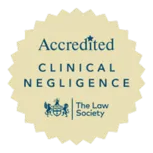What is the Purpose of an Inquest?
When someone dies under suspicious circumstances a Coroner is appointed to investigate the death. Usually these are circumstances where the death was violent or unnatural, the cause of death remains unknown following post-mortem examination and/or the person died in prison or police custody.
The focus of most investigations following the death of an individual is establishing the cause of death, so a post-mortem examination may be carried out. If despite the post-mortem examination the cause of death remains undetermined or it was found to be unnatural, then an Inquest will be held.
The purpose of the Inquest is to confirm to families where and when their loved one died and how their death came about. An Inquest is required so the discussions and findings are documented as official records.
An Inquest is a public Court hearing so the Coroner may require witness and/or expert evidence to assist their investigations. The Inquest is a fact-finding process and not used to apportion blame or responsibility. Whilst findings in the Inquest may lead to criminal or civil proceedings these issues will be dealt with separately and in other Courts.
At the conclusion of the Inquest, the death will be registered. The following causes of death may be stated:
- Accident or misadventure
- Alcohol/drug-related
- Industrial disease
- Lawful killing
- Unlawful killing
- Natural causes
- Open/narrative - where none of the other findings apply, but instead a description of the factual findings is given
- Road traffic accident
- Stillbirth
- Suicide
In circumstances of an avoidable death, a Coroner’s Report should set out exactly how the death could have been avoided and describe any treatment that fell below a standard which could have been reasonably expected by the individual, that contributed to their death. These findings can be used as evidence in a claim for medical negligence.

What Must I Do if I Need to Attend an Inquest?
We appreciate that requirements of an Inquest in addition to dealing with your bereavement will be very difficult. Our Medical Negligence Lawyers will guide you through the process. We will assist with preparation of questions to ask at the Inquest and in certain circumstances, it may be appropriate for us to attend with you.
As an Inquest is a fact-finding process, instruction of a Solicitor isn’t normally necessary and any questions which are asked should stay within the remit of purpose of the Inquest. The Coroner will not address legal issues such as the legal tests (breach of duty and causation) to prove medical negligence.
It can be useful to get legal advice in any event so that you fully understand what is required of you and what the steps will be going forward. Legal advice from our specialist team can equip you with the information you need to determine if you would likely be successful in bringing a claim for medical negligence.
Our Team can provide information and advice, answer any questions you may have about the process and will be as transparent as possible so that the difficult period you are going through is not made any harder by the legal process.
This will be a difficult process to go through emotionally. The Inquest will entail some very difficult discussions and undoubtedly bring to the surface, feelings about the loss of your loved one. We can help you find resources and signpost you to appropriate organisations who are out there to help people deal with and come to terms with the emotional trauma an Inquest may bring up.
Concerned about Findings at an Inquest?
Many of our clients only become concerned about a potential medical negligence claim once an Inquest has taken place and concerns have been raised about the care their loved one received. Often, this is the first time someone would be made aware that their late family member was a victim of medical negligence. From this point, many people who are concerned about the findings go down the route of seeking legal advice.
An Inquest can help you further understand the circumstances of your loved one’s passing.
With the right legal advice, you’ll be able to prepare properly for what might come next in your case.
Get in Touch
Our Medical Negligence Solicitors are always happy to consider the written findings of an Inquest if one has already taken place to advise you whether there is likely to be a potential claim for clinical negligence.
In many cases, the findings and independent expert evidence obtained in an Inquest can be very helpful in assessing and investigating a medical negligence case. In some previous circumstances we have been able to obtain an early admission of liability due to findings of an Inquest.
If you are concerned about Inquest findings and the death of your loved one could have been avoided, you may be able to claim compensation on behalf of the person’s estate and for anyone who was financially dependent or dependant on the individual for provision of services. We can help you understand what you are entitled to claim compensation for. We will instruct an independent medical expert to look over your case to see if the death could have been avoided.
If we find that the death of your loved one was avoidable and that it occurred as a result of medical negligence, we will guide you through the initial steps of how to bring a claim for compensation. We will advise you at every step of the process, giving you regular updates about your case.







